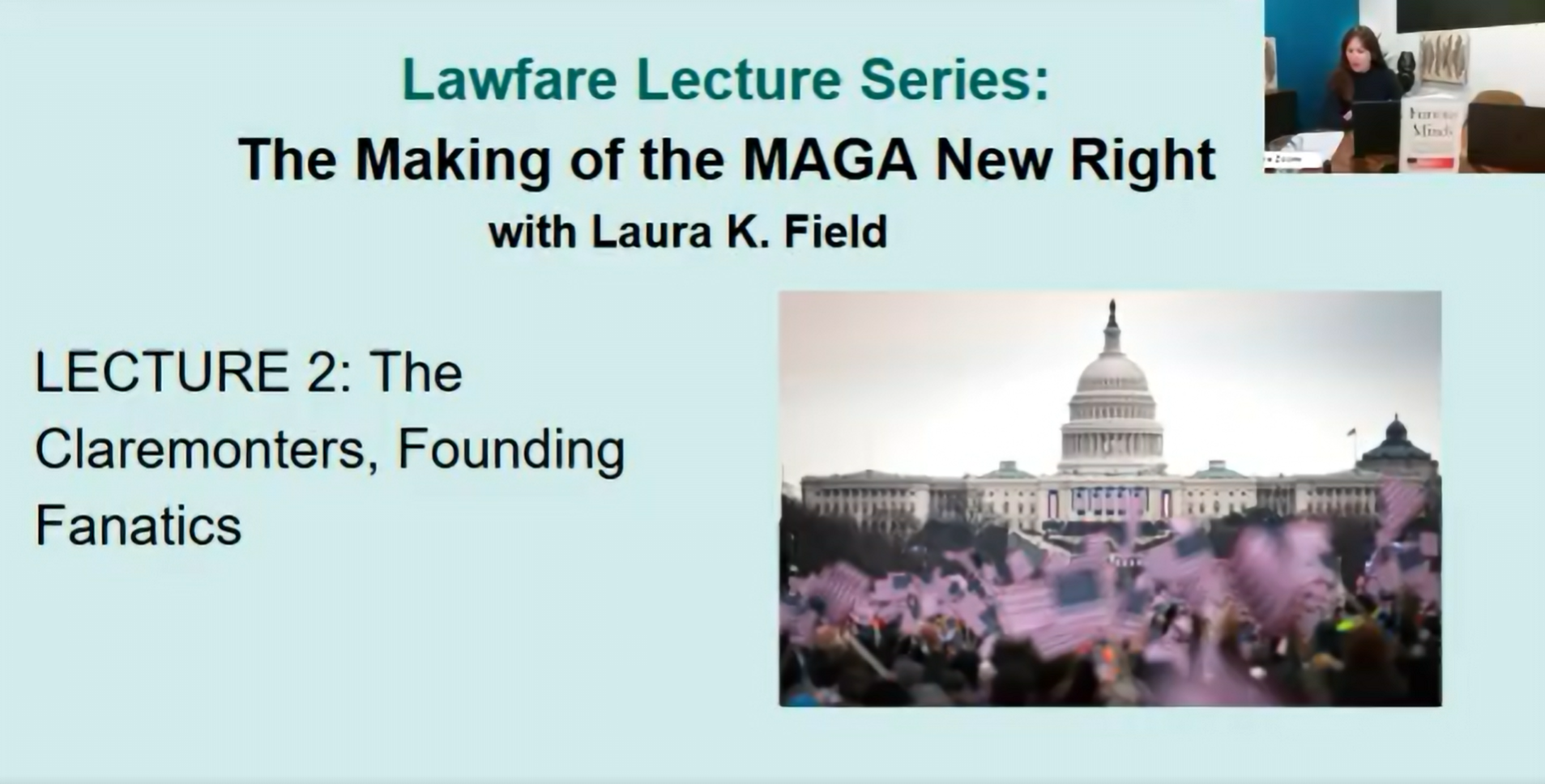The Week That Was: All of Lawfare in One Post
Following the march of Juggalos on the National Mall last weekend, Nora Ellingsen explained who the Juggalos, why they marched, and the history of the litigation that gave rise to the gathering.
Following the march of Juggalos on the National Mall last weekend, Nora Ellingsen explained who the Juggalos, why they marched, and the history of the litigation that gave rise to the gathering.
In the midst of multiple revelations concerning the Russia investigation this week, Susan Hennessey, Shannon Togawa Mercer, and Benjamin Wittes analyzed the reports that the FBI obtained a FISA warrant to investigate the communications of Paul Manafort. Bob Bauer broke down what the news about internal conflicts in President Trump’s legal team meant for the Russia investigation. And Hennessey and Wittes listed 10 totally normal, not at all crazy things to hate about Robert Mueller for their Lawfare@FP column.
Wittes shared the "Age of Flynnocence Edition" of Rational Security:
To respond to the government’s arguments in the Supreme Court case on the Trump administration's revised travel ban, Robert Loeb argued that the presumption of regularity does not inhibit judicial review of the motivations behind the order.
Robert Chesney and Steve Vladeck posted the National Security Law Podcast, in which they discussed the FISA warrants on Paul Manafort and the American citizen enemy combatant detained in Syria last week:
Matthew Kahn shared the transcript of NSA General Counsel Glenn Gerstell’s remarks on Section 702 Oversight at a lecture at the Strauss Center for International Security.
Benjamin Wittes flagged the reply brief filed on cert in Bahlul vs. United States.
Robert Chesney discussed the Trump administration’s proposed changes to the legal and policy frameworks for the use of lethal force for counterterrorism purposes.
J. Dana Stuster updated the Middle East Ticker, covering the upcoming Kurdish independence referendum, Saudi Arabia’s mix of economic reforms and political crackdowns, and quiet outreach from the Gulf states to Israel. Beverly Milton-Edwards and Alexander Brammer analyzed the perspectives of Iraqi officials in Mosul about the upcoming referendum on Kurdish independence.
Vanessa Sauter posted this week's Lawfare Podcast, featuring audio from a Brookings Institution panel event on Cybersecurity in U.S. elections with Susan Hennessey, John Allen, Alex Halderman, Dean Logan, and Michael O’Hanlon:
Jesse Goldhammer and Zach Graves argued for the creation of a Cyber Workforce Incubator to place private-sector cyber talent in government agencies. Sarah Tate Chambers summarized developments in cybercrime prosecutions over the last two months in the latest Cybercrime Roundup. And Stewart Baker shared the Cyberlaw Podcast, featuring an interview with Jeanette Manfra, DHS’s Assistant Secretary for Cyber Security and Communications:
Steve Vladeck outlined the implications of the Supreme Court’s consideration of three cert petitions dealing with military officers and the Court of Military Commissions Review for civilian control of public offices.
Matthew Kahn celebrated the 70th birthday of the National Security Act of 1947.
Kahn also posted the application for the 2018 Clara Barton International Humanitarian Law Competition.
In the Foreign Policy Essay, Joshua Rovner analyzed how the politicization of the intelligence community will affect the Russia investigation and the integrity of national security institutions.
Shannon Togawa Mercer summarized the key issues in the ongoing Brexit negotiations between the U.K. and the EU.
Megan Reiss examined the potential effects of the sweeping sanctions the Trump administration levied against North Korea this week.
Elsa Kania wrote about the potential for AI to be a disruptive force in Great Power strategic competition and the risks it poses for global stability.
And that was the week that was.




.png?sfvrsn=bd249d6d_5)
